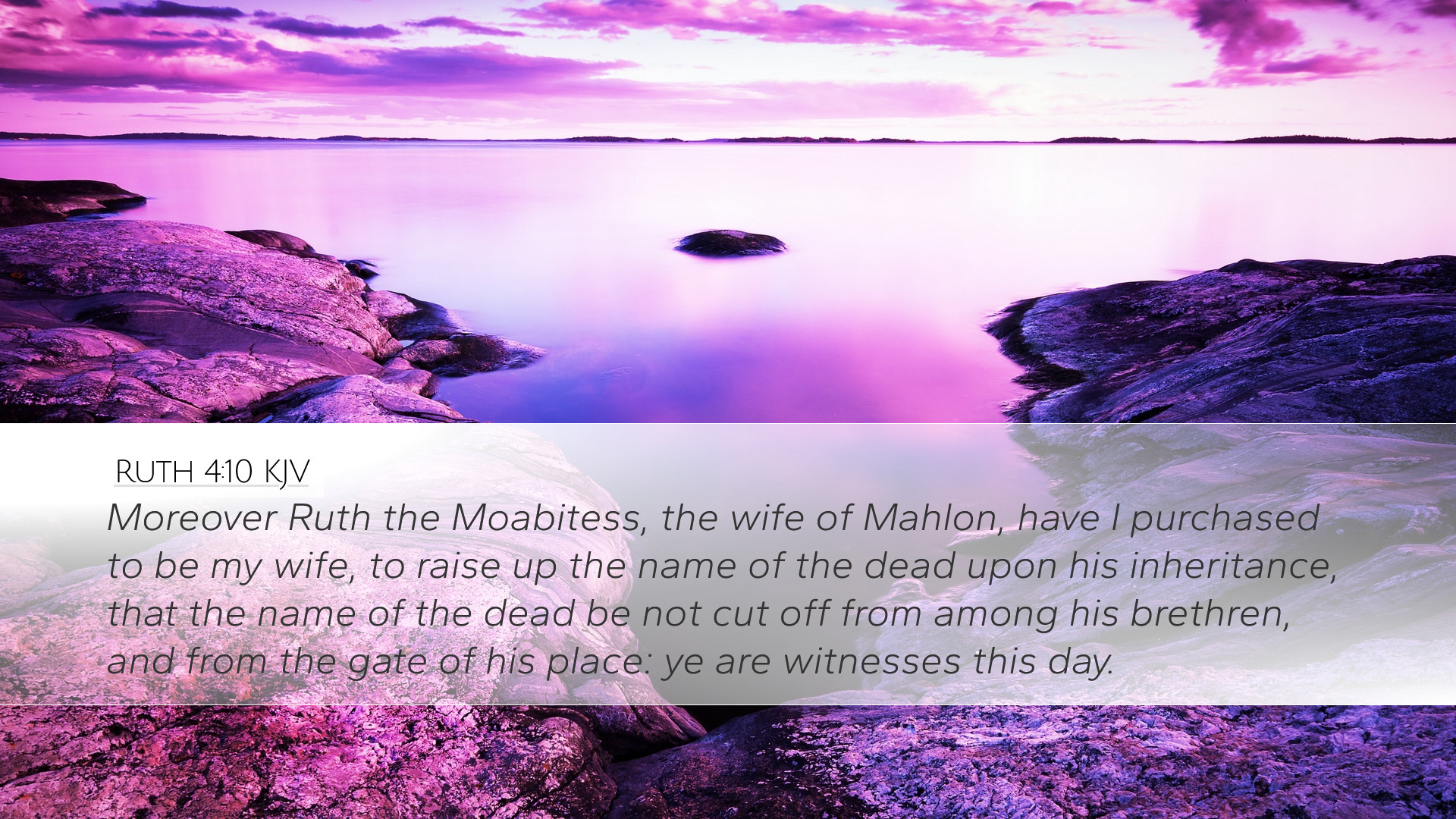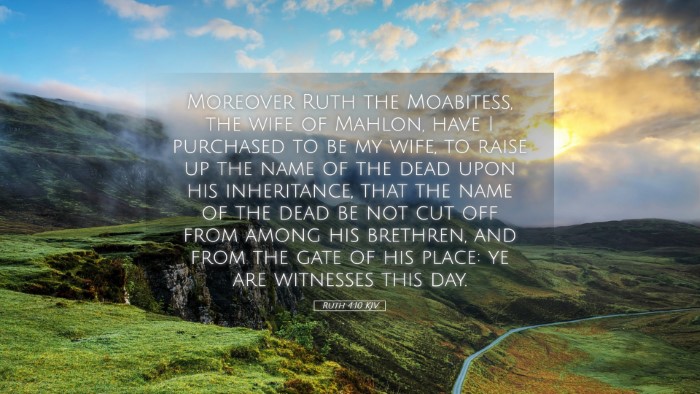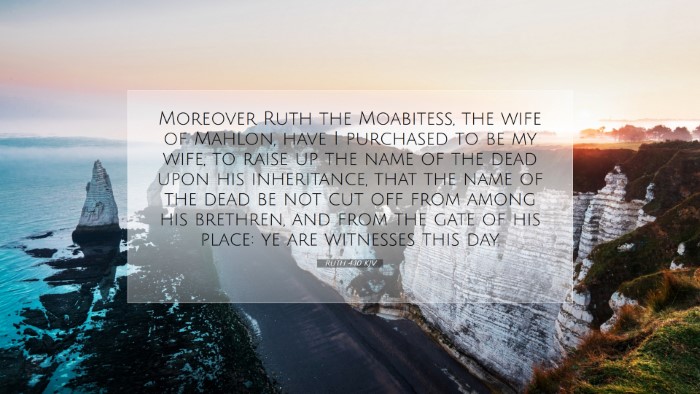Old Testament
Genesis Exodus Leviticus Numbers Deuteronomy Joshua Judges Ruth 1 Samuel 2 Samuel 1 Kings 2 Kings 1 Chronicles 2 Chronicles Ezra Nehemiah Esther Job Psalms Proverbs Ecclesiastes Song of Solomon Isaiah Jeremiah Lamentations Ezekiel Daniel Hosea Joel Amos Obadiah Jonah Micah Nahum Habakkuk Zephaniah Haggai Zechariah MalachiRuth 4:10
Ruth 4:10 KJV
Moreover Ruth the Moabitess, the wife of Mahlon, have I purchased to be my wife, to raise up the name of the dead upon his inheritance, that the name of the dead be not cut off from among his brethren, and from the gate of his place: ye are witnesses this day.
Ruth 4:10 Bible Commentary
Commentary on Ruth 4:10
Ruth 4:10: "Moreover, Ruth the Moabitess, the widow of Mahlon, have I purchased to be my wife, to raise up the name of the dead upon his inheritance, that the name of the dead be not cut off from among his brethren, and from the gate of his place: ye are witnesses this day."
Introduction
This verse is pivotal in the Book of Ruth, as it encapsulates the themes of redemption, family lineage, and the social customs of the Israelites regarding levirate marriage. In this commentary, we will explore the theological implications, practical lessons, and historical contexts surrounding this verse.
Theological Significance
The act of Boaz purchasing Ruth reflects God's redemptive purpose. Matthew Henry notes that the purchase symbolizes spiritual redemption. Just as Boaz redeems Ruth, God redeems His people, restoring them into His family. The phrase “to raise up the name of the dead” indicates a profound understanding of legacy in Israelite culture. The preservation of a family name signifies the importance placed on lineage and community.
Albert Barnes emphasizes the role of Boaz as a kinsman-redeemer, a concept crucial in Hebrew culture. By marrying Ruth, Boaz not only fulfills his duty but also extends God’s mercy and grace. This foreshadows Christ's ultimate redemption of humanity, as He takes on our human nature to provide salvation.
Sociocultural Context
The levirate marriage law, grounded in Deuteronomy 25:5-10, mandates that a brother marry his deceased brother's widow to preserve his family line. Adam Clarke contextualizes this by illustrating the societal and ethical implications of Boaz’s decision. By marrying Ruth, he adheres to this law, demonstrating integrity and faithfulness. This act elevates Ruth, a Moabitess, to a status of honor within Israel.
Furthermore, the act of buying Ruth’s deceased husband’s land signifies social responsibility. Boaz's integrity in public declaration serves as a model for ethical behavior in commerce and relationships within the community.
Practical Applications
This verse provides rich material for practical application in pastoral ministry and theological education. The commitment Boaz shows to Ruth challenges modern understandings of relationships and loyalty. Matthew Henry encourages leaders to reflect on this commitment level in their own lives, especially as they engage in community and familial responsibilities.
- Integrity in Relationships: Boaz’s actions remind us of the importance of maintaining integrity and honor in our dealings with others.
- Legacy and Family: The significance of lineage in this verse also prompts us to consider the impact of our heritage and how we honor those who have gone before us.
- Redemptive Act: Pastors can take from this the foundation of redemptive work in the church. Each believer has a role in participating in God’s redemptive work.
Conclusion
Ruth 4:10 presents a profound narrative rich with meaning for contemporary audiences. It combines themes of redemption, responsibility, and community ethics that are as relevant today as they were in ancient Israel. Through the actions of Boaz and Ruth, we see a foreshadowing of Jesus Christ's redemptive work. For pastors, students, and theologians, this verse offers a blueprint for faithful living that honors God by seeking out the lost and fostering community, legacy, and love.


